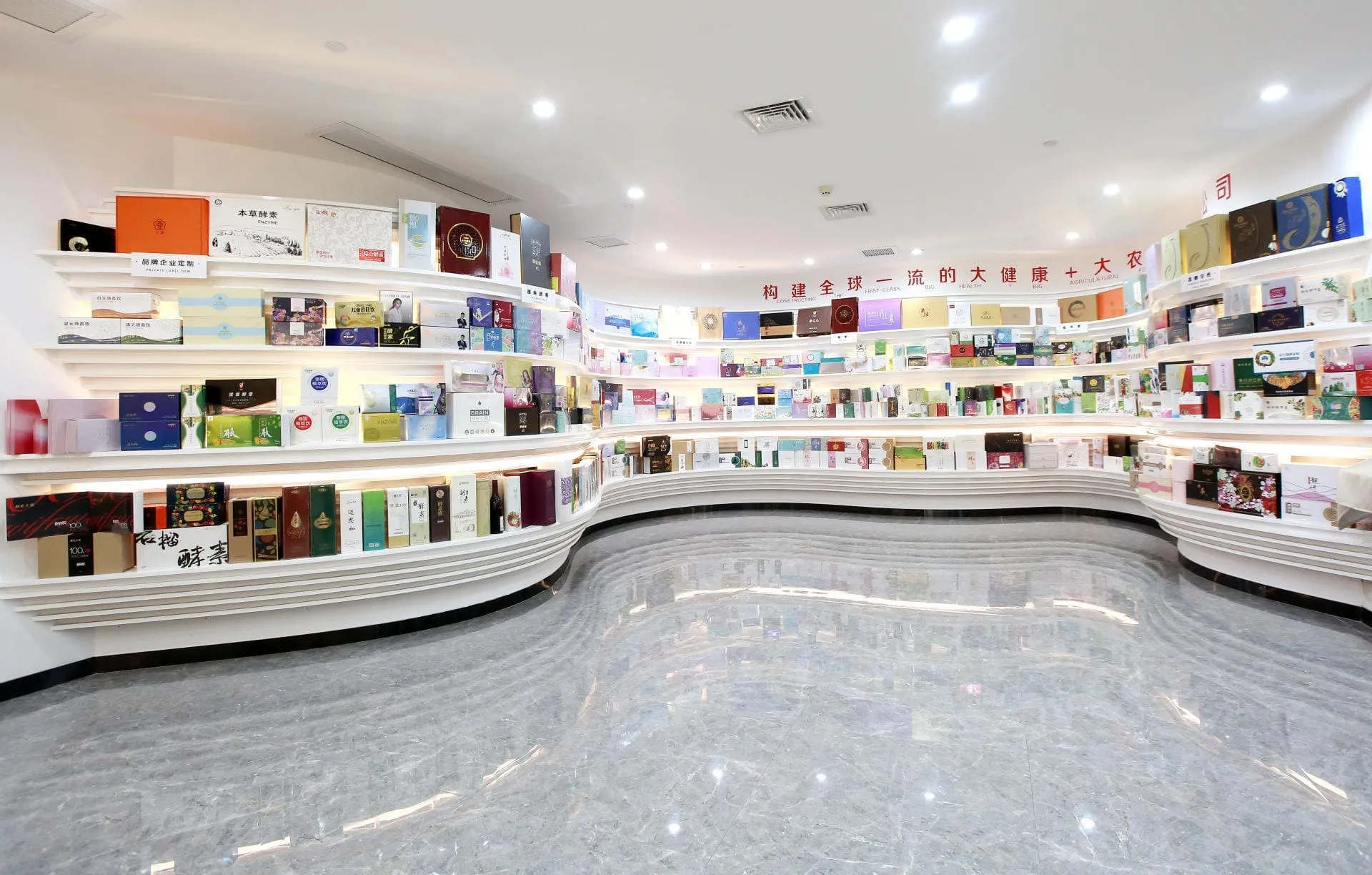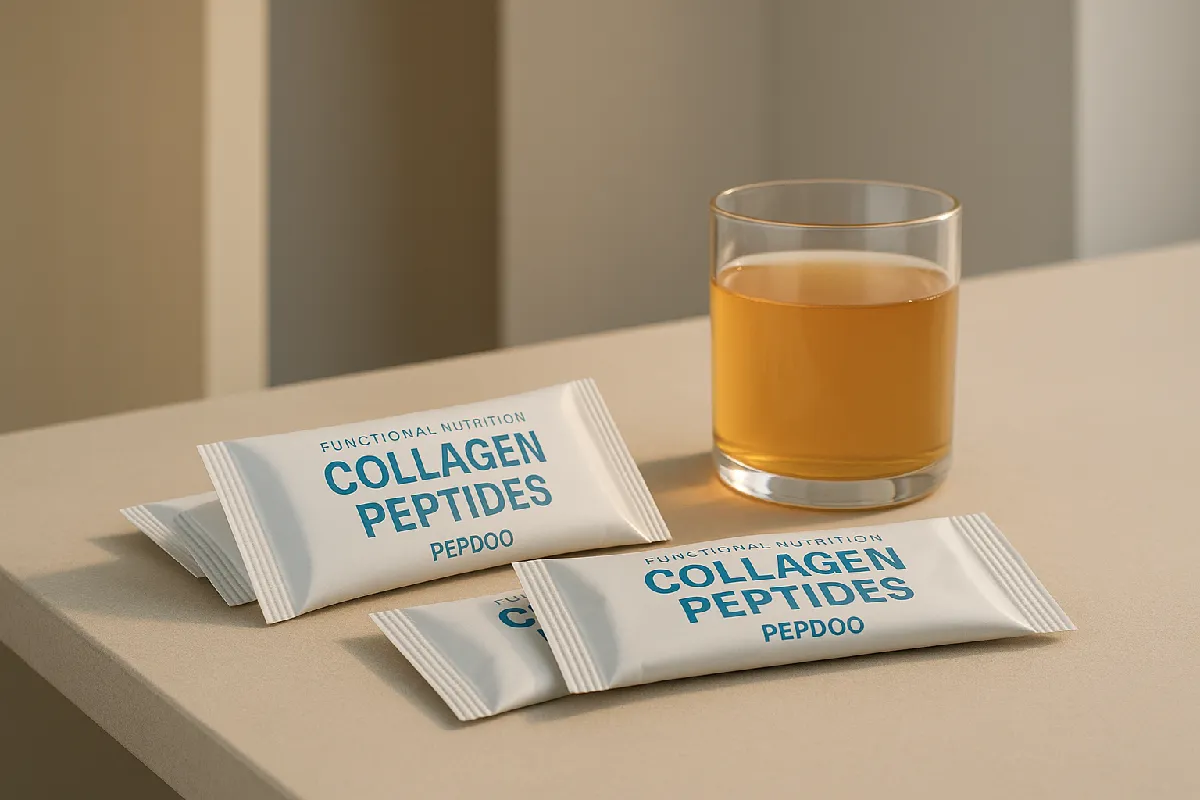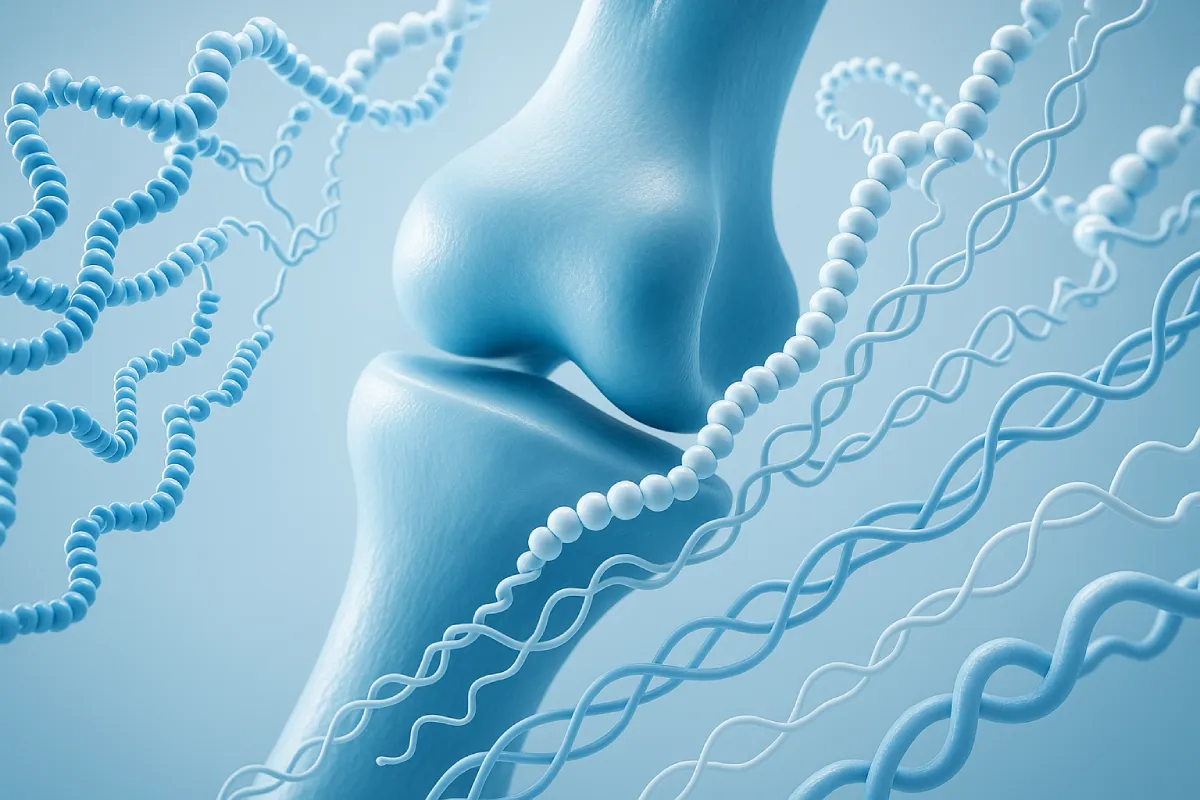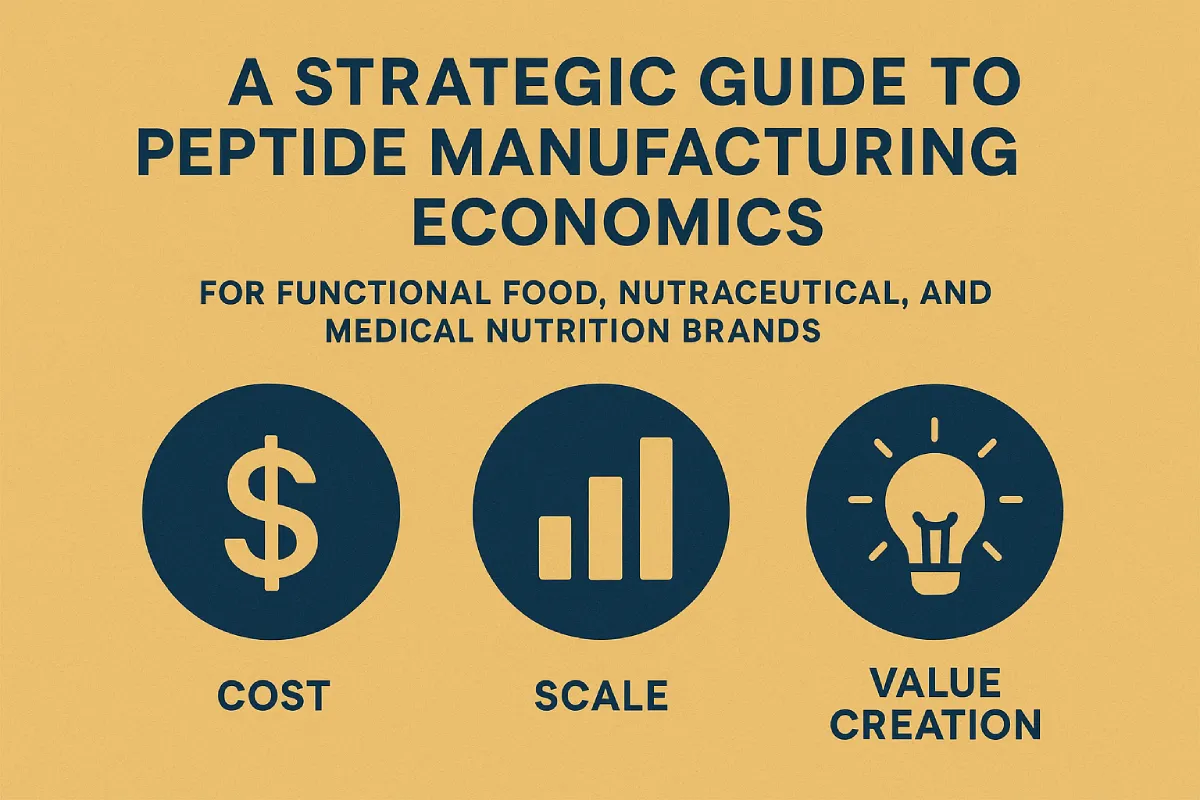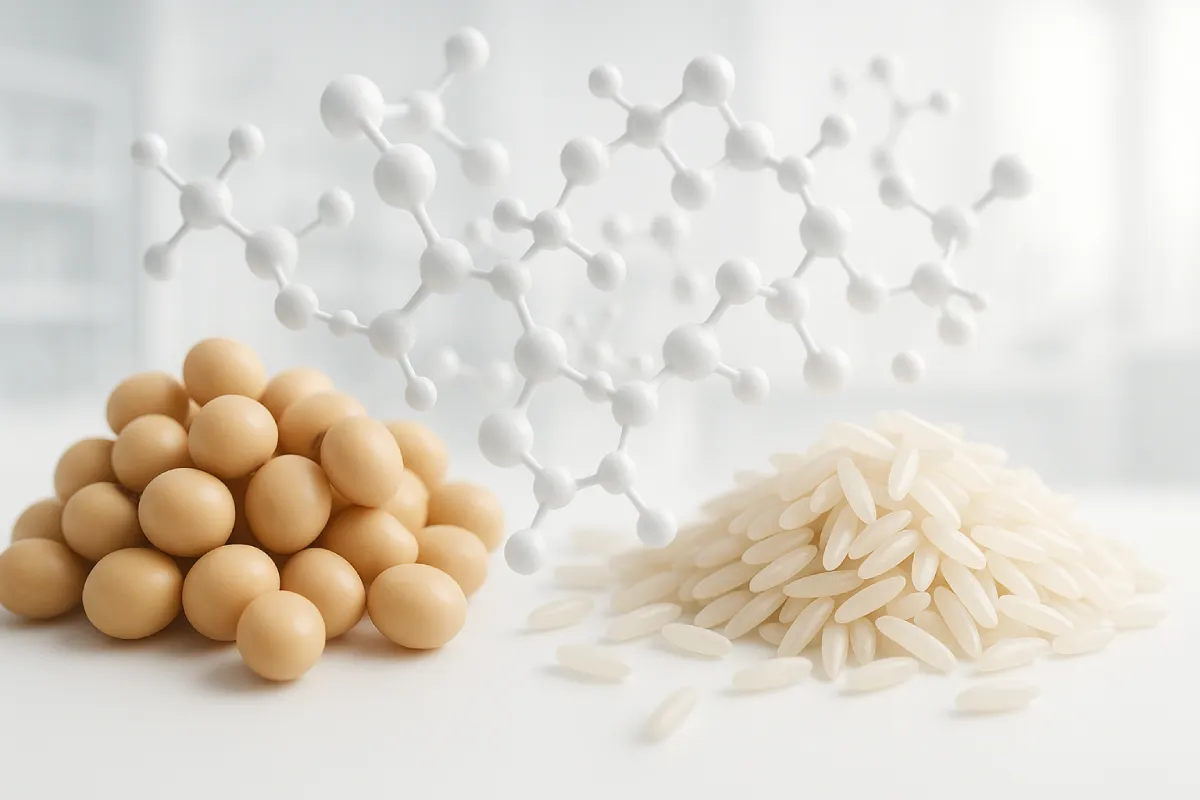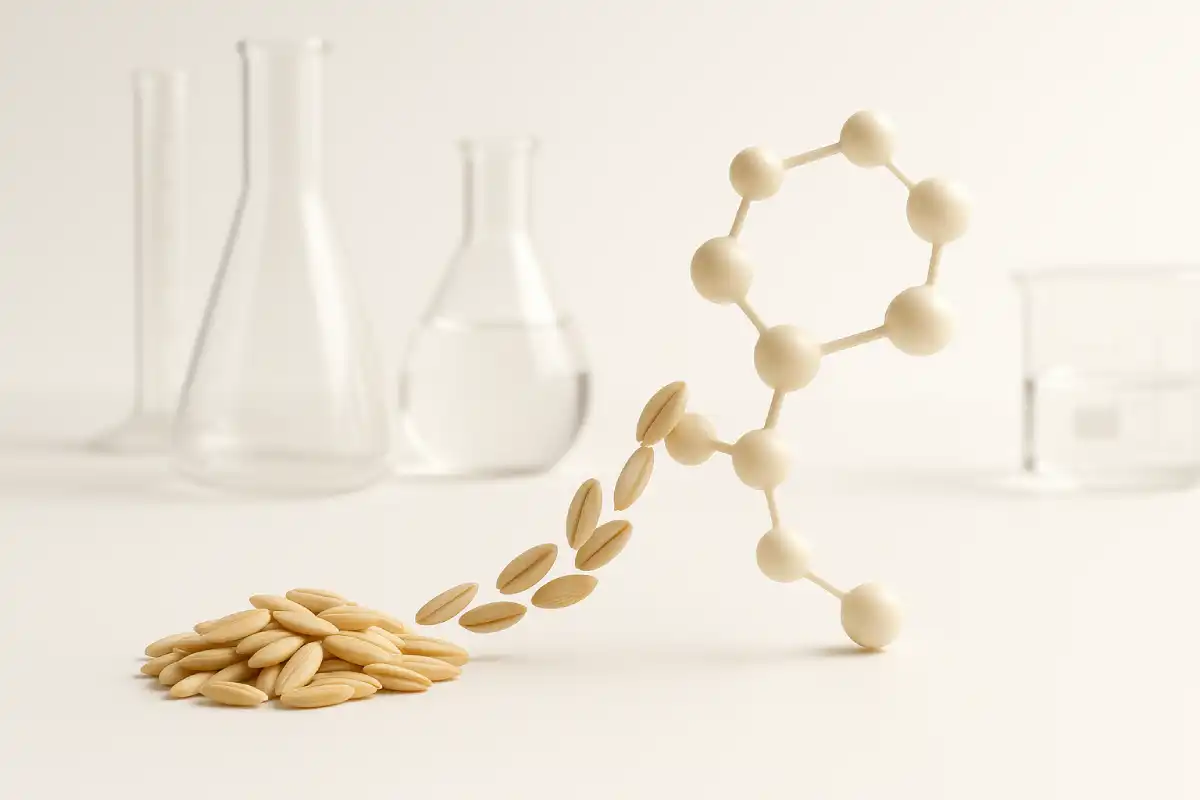1. Beauty-from-Within 3.0: From Collagen Hype to Functional Peptide Science
The global beauty-from-within market is evolving faster than ever. Once dominated by traditional collagen products, the nutricosmetic segment is now entering what experts call the “Beauty-from-Within 3.0” era—where bioactive peptides lead the innovation frontier.
According to Grand View Research, the global nutricosmetics market is expected to grow at a CAGR exceeding 9% through 2030, driven by rising consumer interest in skin health, metabolic balance, and holistic beauty solutions [1]. Shoppers are no longer satisfied with topical skincare alone; they seek nutritional interventions that promote radiance from the inside out.
In this new landscape, marine and plant peptides represent two powerful, complementary directions. Marine peptides are celebrated for their collagen-boosting activity and clinical evidence, while plant peptides are gaining ground with their clean-label, sustainable, and multifunctional appeal. This article explores both categories—scientifically, strategically, and commercially—to help B2B innovators identify the right solution for next-generation nutricosmetic formulations.
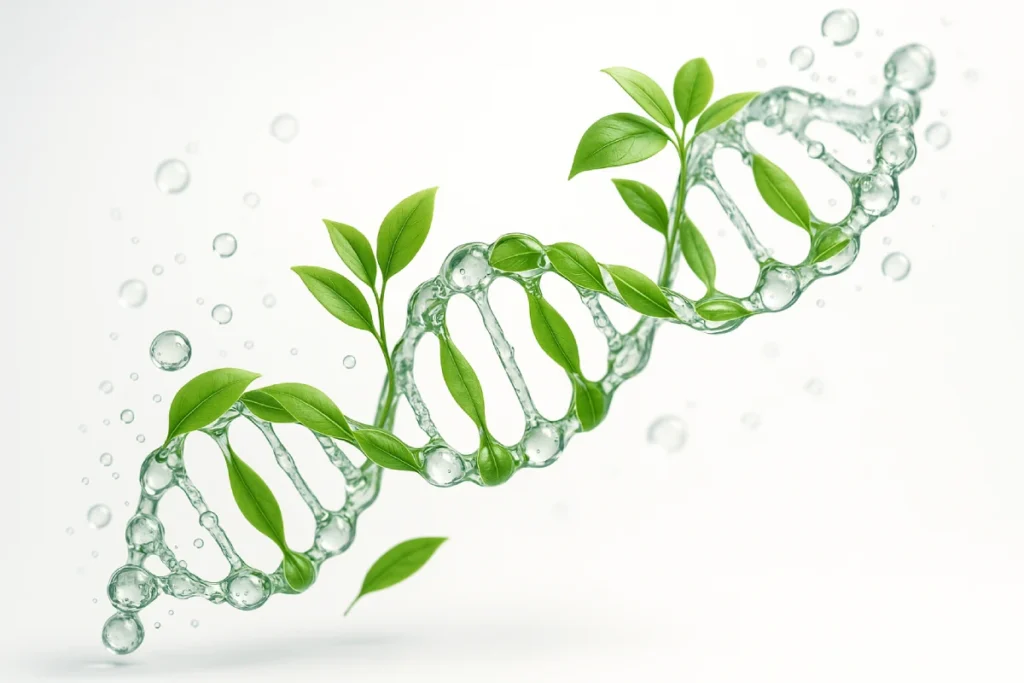
2. What Makes Peptides the Future of Beauty Nutrition?
Peptides are short chains of amino acids—mini proteins that serve as messengers and bioactive molecules within the human body. Their small molecular weight (generally under 1500 Da) allows for efficient absorption and targeted biological effects.
In the context of beauty nutrition, bioactive peptides contribute to several mechanisms essential for skin vitality:
- Collagen synthesis – stimulating fibroblasts to produce type I and III collagen;
- Antioxidant and anti-glycation effects – preventing oxidative and sugar-induced skin aging;
- Anti-inflammatory modulation – supporting barrier integrity and reducing redness.
At PEPDOO®, enzymatic hydrolysis and precise molecular fractionation ensure high-purity, function-specific peptides. As a full-range peptide manufacturer, China’s peptide industry standard setter, and one of the leading holders of small-molecule peptide patents, PEPDOO® applies advanced hydrolysis and fermentation technologies that preserve peptide activity and enhance functional performance.
This scientific control enables consistent efficacy in applications ranging from nutricosmetic drinks to functional capsules and powders.
3. Marine Peptides: Proven Science Behind Ocean-Derived Collagen
Marine peptides are extracted from fish skin, scales, oyster meat, sea cucumber, and other ocean-derived materials. Compared with land animal proteins, marine peptides feature a smaller molecular size (300–1000 Da), higher solubility, and superior absorption rates.
Clinical and Functional Evidence
Scientific studies demonstrate that marine collagen peptides:
- Improve skin elasticity, hydration, and smoothness [2];
- Reduce wrinkle depth and UV-induced damage [3];
- Enhance antioxidant capacity and dermal density [4].
These results are attributed to the presence of hydroxyproline and other amino acids unique to marine collagen, which serve as structural precursors for extracellular matrix repair.
Market Success Stories
- A leading Japanese nutricosmetic drink formulated with marine collagen tripeptides recorded a 40% sales increase within three months of launch.
- In South Korea, a marine collagen + vitamin C powder achieved top-10 ranking in beauty supplement e-commerce channels due to strong consumer trust and clinical backing.
PEPDOO® Marine Peptide Solutions
PEPDOO® has developed a proprietary multi-enzyme hydrolysis and precision drying process that preserves marine peptide activity while improving taste and solubility. Its Oyster Peptide—rich in zinc and taurine—has been adopted by multiple men’s health and anti-fatigue supplement brands for its dual antioxidant and metabolic benefits.
SEO focus: marine collagen peptides, marine peptide manufacturer, oyster peptide supplier, collagen for skin health
4. Plant Peptides: Clean, Sustainable, and Multi-Functional
Plant-based nutrition is redefining functional beauty. Derived from soy, pea, rice, and mulberry leaves, plant peptides align with global consumer trends toward vegan-friendly, sustainable, and ethical ingredients.
Functional Benefits
Unlike marine peptides, plant peptides are rich in hydrophobic and branched-chain amino acids that support:
- Anti-glycation activity – inhibiting the formation of AGEs (Advanced Glycation End-products) responsible for dullness and loss of elasticity;
- Antioxidant protection – scavenging free radicals and promoting even skin tone;
- Gut–skin axis regulation – improving microbiota balance and systemic inflammation.
Case Studies from the Market
- A European functional food brand launched a soy peptide + vitamin E complex, achieving double-digit market share growth in pharmacy channels within one quarter.
- In China, formulations based on rice peptides have been adopted by cross-border beauty brands for anti-glycation and brightening claims.
PEPDOO® Plant Peptide Technology
Through its patented multi-enzyme + Lactobacillus fermentation process, PEPDOO® enhances peptide yield, stability, and bioactivity. As one of China’s peptide standard setters and patent leaders, PEPDOO® offers complete plant peptide lines—ranging from Soy Peptide to Mulberry Leaf Peptide—for diverse functional food and beauty applications.
5. Marine vs Plant Peptides: Comparative Insights for Formulators
| Evaluation Factor | Marine Peptides | Plant Peptides |
|---|---|---|
| Primary Source | Fish, oyster, marine collagen | Soy, pea, rice, mulberry leaf |
| Molecular Weight | 300–1000 Da | 500–1500 Da (variable by fermentation) |
| Key Functions | Collagen synthesis, skin elasticity | Anti-glycation, antioxidant, barrier repair |
| Consumer Appeal | Clinically proven, premium image | Vegan, sustainable, clean-label |
| Cost & Scalability | Moderate | Highly scalable |
While marine peptides deliver robust structural repair, plant peptides offer defensive protection and metabolic balance. The future of nutricosmetics lies not in competition, but in synergistic peptide systems—where ocean and plant act in harmony.
Example of Dual Peptide Formulation
A Japanese beauty powder brand combined marine collagen tripeptides with soy peptide fractions to create a “dual-action anti-aging system.” The syn
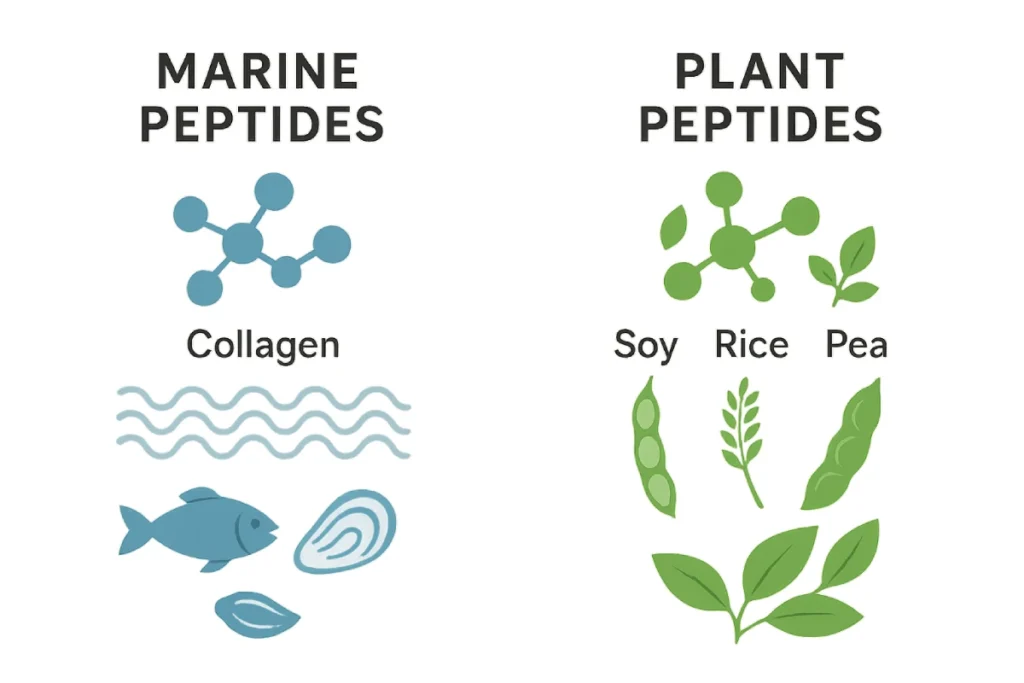
6. Formulation Strategies: Designing the Next-Gen Nutricosmetic
Modern nutricosmetic formulation requires more than functional claims—it demands scientific precision and sensory optimization.
Trending Peptide Combinations
- Marine + Plant Peptide Blends – balancing collagen regeneration with antioxidant defense;
- Peptide + Hyaluronic Acid or Vitamin C – enhancing hydration and skin radiance;
- Peptide + Prebiotics/Probiotics – supporting the gut–skin axis for holistic wellness.
PEPDOO® Formulation Blueprints
- Beauty Collagen Shot Base: Marine Collagen Peptide + Rice Peptide + Hyaluronic Acid
- Vegan Glow Blend: Soy Peptide + Mulberry Leaf Peptide, targeting anti-glycation and oxidative stress
All formulations leverage PEPDOO®’s core technologies:
- Molecular fractionation for purity and consistency;
- Thermal stability enhancement for processing resilience;
- Patent-protected enzyme systems that maximize biological activity.
As a global full-range peptide manufacturer, PEPDOO® offers B2B partners a complete solution—from ingredient development and efficacy validation to scalable manufacturing and product prototyping.
7. Sustainability & Future Outlook
The next decade of beauty nutrition will be defined by science, sustainability, and personalization.
- Sustainable sourcing: PEPDOO® utilizes marine byproducts (fish scales, oyster shells) to reduce waste and promote circular economy practices.
- Clean-label innovation: Plant peptides provide low-carbon alternatives aligned with environmental certifications.
- Green manufacturing: PEPDOO® implements zero-wastewater systems and energy-efficient fermentation technologies to ensure eco-friendly production.
Through these initiatives, PEPDOO® not only strengthens its leadership as a peptide manufacturer, but also demonstrates commitment to global ESG goals and future-ready peptide ecosystems.
Driving Next-Gen Nutricosmetics: Marine & Plant Peptide Solutions
In the evolving Beauty-from-Within landscape, peptides stand at the intersection of science, sustainability, and consumer aspiration. Marine peptides provide collagen support and proven clinical benefits, while plant peptides deliver antioxidant, anti-glycation, and clean-label advantages.
Together, they represent a synergistic path toward next-generation nutricosmetics—where molecular precision meets holistic formulation design.
Partnering with PEPDOO® means accessing:
- A complete peptide portfolio across marine, plant, and fermented sources;
- China’s most advanced hydrolysis and peptide synthesis technologies;
- Full-spectrum B2B innovation support—from R&D collaboration to formulation guidance and regulatory insight.
Unlock Next-Gen Beauty Solutions with PEPDOO®
Partner with China’s leading peptide manufacturer, patent leader, and industry standard setter to co-create the next wave of functional beauty innovations.
Contact Our Expert TeamFAQ
Marine peptides (e.g., fish collagen peptides, oyster peptides) are rich in type I collagen and small bioactive fragments that directly promote skin elasticity and hydration. Plant peptides (e.g., soy, rice, pea peptides) support beauty-from-within indirectly—by improving antioxidant activity, glycation resistance, and microbiota balance. Combining both sources allows dual-function solutions: structural repair + cellular protection.
Plant peptides generally exhibit higher solubility and neutral taste profiles, suitable for functional beverages and instant powders. Marine peptides may require flavor masking or encapsulation in ready-to-drink formats. PEPDOO® provides tailored hydrolysis and deodorization solutions to achieve both efficacy and consumer acceptance.
Bioavailability depends on molecular weight (<1000 Da), peptide sequence, and delivery form. PEPDOO® applies multi-enzyme hydrolysis and fermentation optimization to generate tripeptides and oligopeptides with proven absorption efficiency. Pairing peptides with hyaluronic acid, ceramides, or antioxidants enhances synergistic effects.
Yes. PEPDOO®’s plant-based peptides (soy, rice, pea) are 100% vegan, allergen-controlled, and non-GMO. Marine peptides are derived from sustainable fish and shellfish sources, complying with EU and FDA clean-label regulations. Both types are available with traceable origin documentation and custom blend support.
Absolutely. Examples include: Anti-aging: Fish collagen + soy peptide; Whitening: Rice peptide + marine elastin peptide; Anti-glycation: Mulberry leaf peptide + oyster peptide blend. Each formulation is supported by scientific data, patent-backed technology, and industrial scalability.
MOQ: typically 20–50 kg for bulk peptide powder, depending on source and purity. Lead time: 15–30 working days including testing and packaging. Full support is available for custom formulation, pilot production, and packaging design for B2B clients worldwide.
All peptide ingredients are produced in GMP-, ISO22000-, and HALAL-certified facilities. PEPDOO® performs batch-level peptide profiling (HPLC, LC-MS) and provides COA, MSDS, and export documentation. Our R&D team continuously updates formulations to align with EU EFSA, US FDA, and Japan FOSHU standards.
References
- Grand View Research. (2024). Nutricosmetics Market Size, Share & Trends Analysis Report 2024–2030.
- Zague, V. (2008). A new view concerning the effects of collagen hydrolysate intake on skin properties. Archives of Dermatological Research, 300(9), 479–483.
- Shigemura, Y., et al. (2019). Skin improvements by collagen peptide intake: A clinical trial. Journal of Nutritional Science and Vitaminology, 65(1), 39–45.
- Song, H., et al. (2021). Marine collagen peptides improve skin antioxidant status and elasticity in healthy women: A randomized clinical trial. Nutrients, 13(3), 826.

